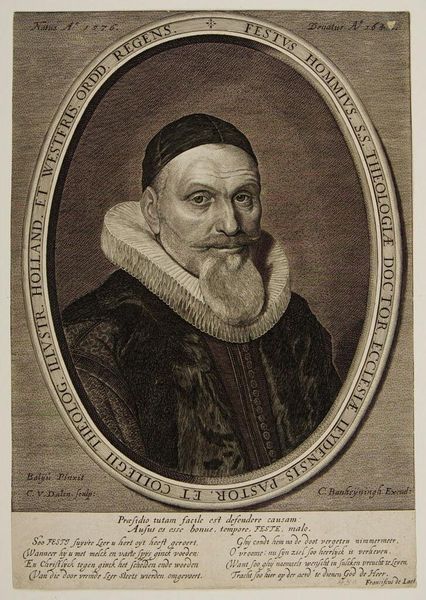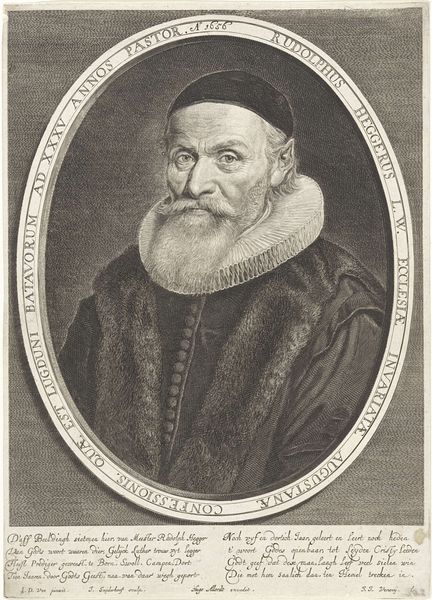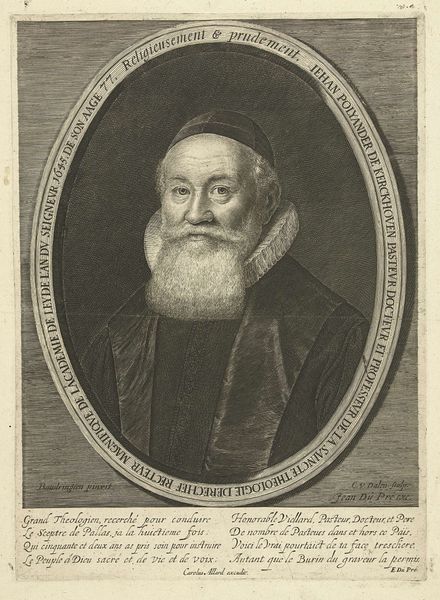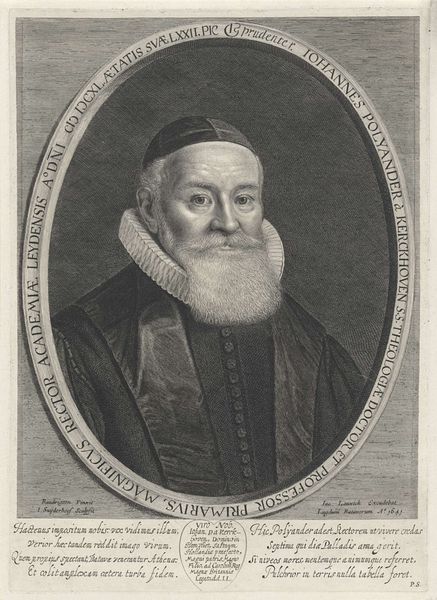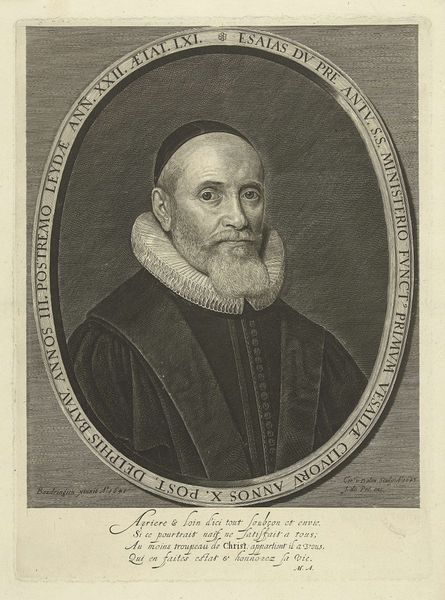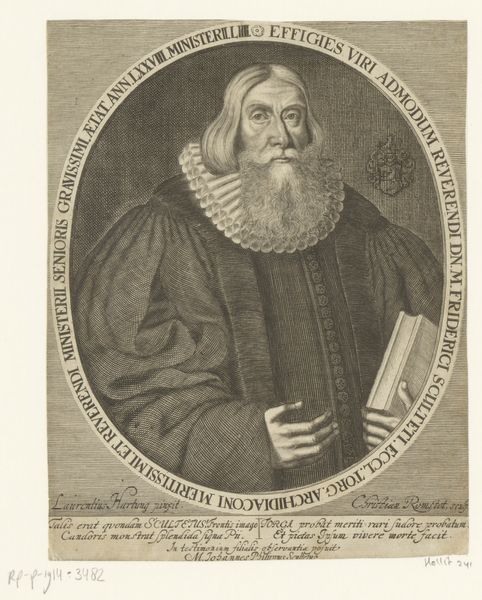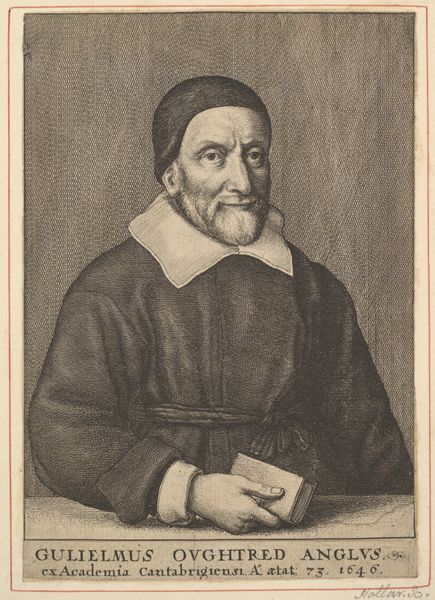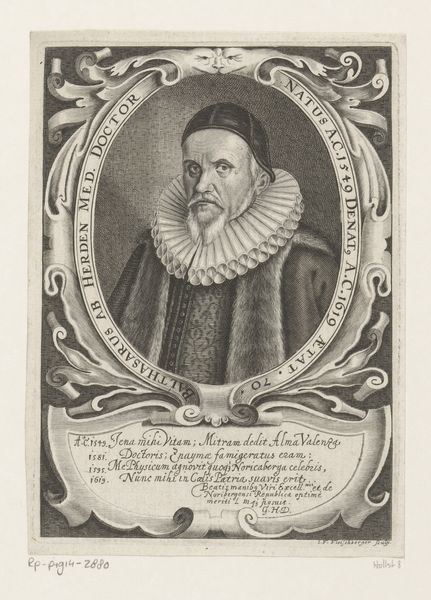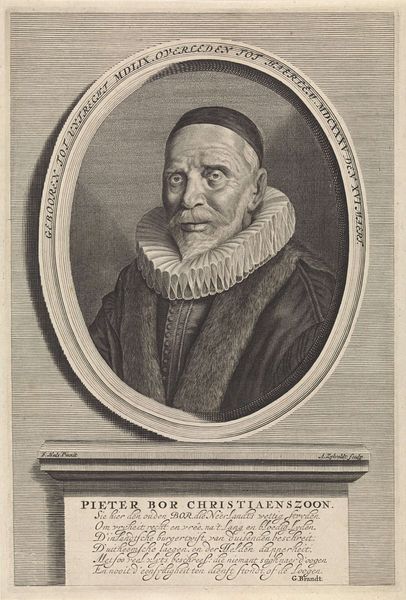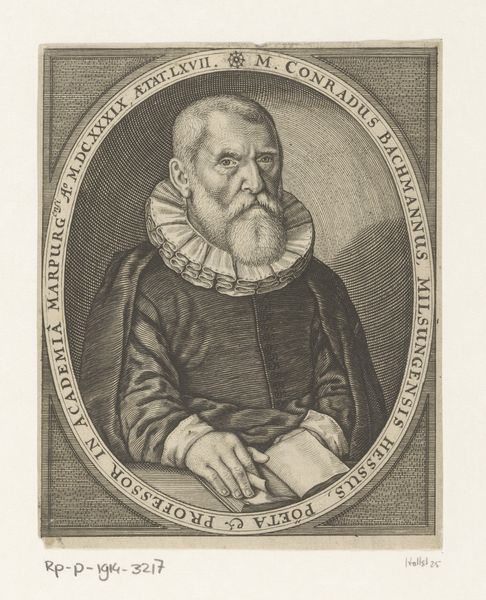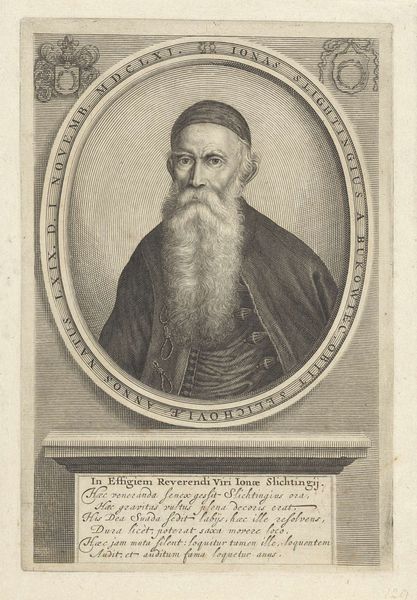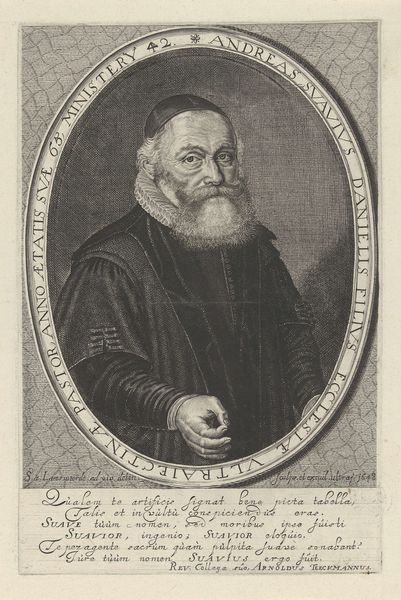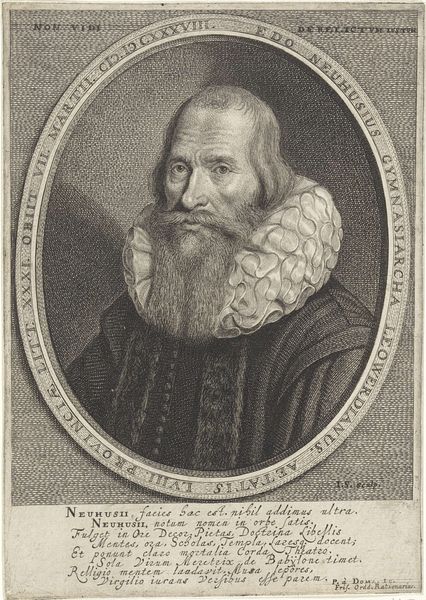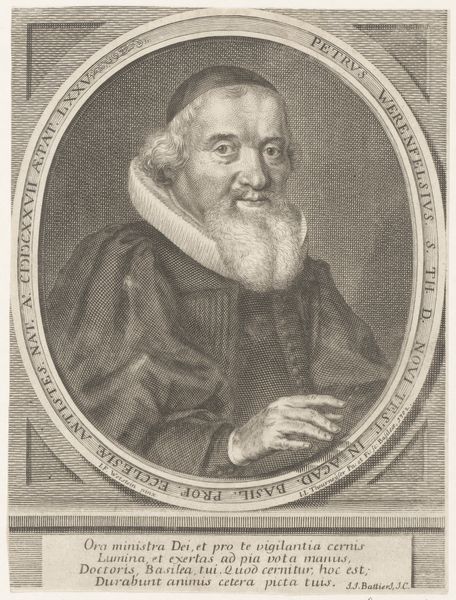
engraving
#
portrait
#
baroque
#
dutch-golden-age
#
old engraving style
#
pencil drawing
#
engraving
Dimensions: height 316 mm, width 225 mm
Copyright: Rijks Museum: Open Domain
This is a portrait of Festus Hommius, engraved by Cornelis van Dalen I. Observe the stark white ruff encircling his neck, a symbol of status and piety during the Dutch Golden Age. This form of neckwear, meticulously pleated, first emerged in Spain and spread across Europe, evolving into various forms and materials. We see echoes of similar neck adornments in earlier depictions of the French monarchy, or later, in the elaborate lace collars of the English court. The ruff signifies not only social standing but also a certain moral rectitude. It confines the wearer, demanding upright posture, mirroring the strict doctrines Hommius espoused as a theologian. Consider the psychological weight of such attire; the physical restriction influencing the wearer's demeanor, projecting an image of controlled authority and intellectual rigor. This isn't mere vanity, but a carefully constructed performance of self, a visual assertion of power and religious conviction, passed down through generations.
Comments
No comments
Be the first to comment and join the conversation on the ultimate creative platform.
